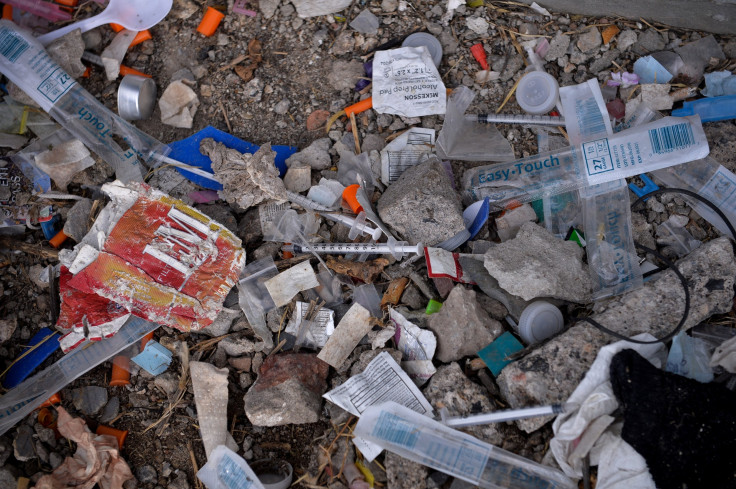Google Maps' Feature For National Prescription Drug Take-Back Day Fights Opioid Epidemic

Google announced Wednesday it is launching a feature in partnership with the Drug Enforcement Administration (DEA) that will help people find locations on its Maps platform for safe disposal of excess prescription drugs. The latest feature, which is aimed at helping fight the opioid epidemic, comes in advance of April 28th’s National Prescription Drug Take-Back Day.
"Research by the federal government has shown that prescription drug abuse is a large driver of opioid addiction, and that the majority of abused prescription drugs are obtained from family or friends, often from a home medicine cabinet," the search giant wrote in a blog post. "The U.S. Drug Enforcement Administration (DEA) has found that one way that Americans can help prevent drug abuse and addiction is to properly dispose of unneeded or expired prescription drugs. Yet many people aren’t aware of, or can’t easily find, prescription drug disposal programs in their communities."
According to Google, the locator tool will allow people to find a place close to them where they can safely dispose of leftover prescription medication. The feature can be easily used only by filling in the address or ZIP code to get a list of authorized recycling centers and similar drop facilities.
Several states in the U.S. will mark the National Prescription Drug Take-Back Day by running campaigns in partnership with the DEA, providing a safe, convenient and responsible means of disposal of the excess prescription drugs. This year marks the 15th National Prescription Drug Take-Back Day in the country.
The DEA has planned more than 5,600 collection sites, with almost 4,500 partner law enforcement agencies, this weekend to collect the drugs. These sites will be open 10 a.m. to 2 p.m. EDT.
“Take-Back Day helps to keep drugs out of the hands of abusers and potentially save lives by removing unused painkillers and controlled drugs from homes,” DEA Acting Administrator Robert W. Patterson said. “The more unused painkillers or controlled drugs we can help to remove from homes, the more potential lives will be saved. The home medicine cabinet is a frequent target of prescription drug abusers and often provides access to prescription medication. We need the help of the public to dispose of this unwanted source of abuse. Take-Back Day is an effective tool for addressing the opioid crisis in America.”
Over the recent years, the country has seen a stark rise in the number of opioid deaths. According to recent federal data, 63,632 people died of drug overdoses in 2016, with 42,249 of them involving at least one opioid. According to the 2015 National Survey on Drug Use and Health, 6.4 million Americans abused controlled prescription drugs, a majority of which were obtained from family and friends, including from the home cabinet.
"Prescription drugs left unattended or forgotten in family medicine cabinets are one of the most accessible gateways to opiate and heroin abuse," a statement on Congressman Joe Kennedy III's website states. "Americans are now advised that their usual methods for disposing of unused medicines — flushing them down the toilet or throwing them in the trash — both pose potential safety and health hazards."
© Copyright IBTimes 2025. All rights reserved.





















